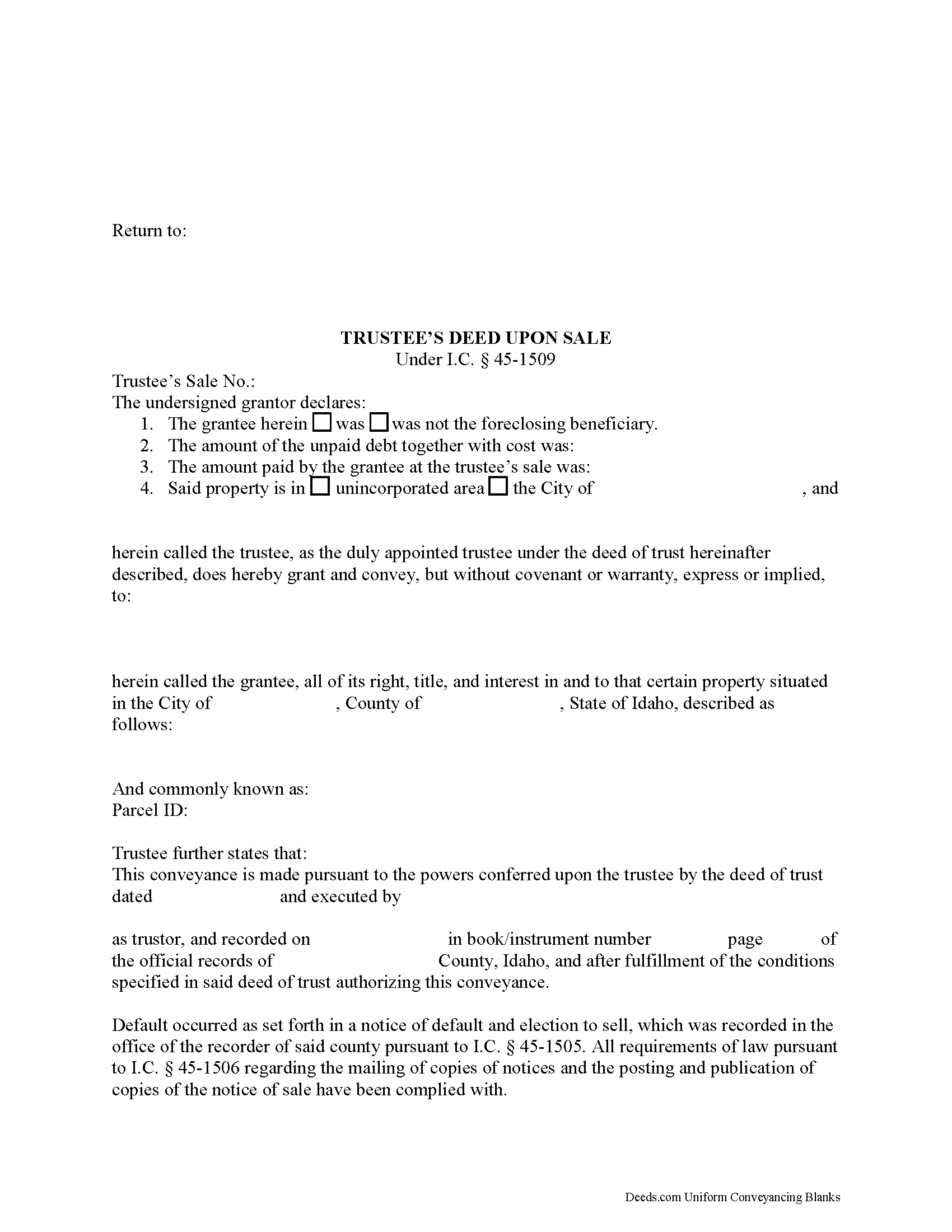Download Idaho Trustee Deed Upon Sale Legal Forms

Idaho Trustee Deed Upon Sale Overview

The Idaho Trustee's Deed Upon Sale is codified at I.C. 45-1509.
A trustee uses a trustee's deed upon sale to convey real property sold at a trustee's sale following foreclosure under a deed of trust. A deed of trust is a security instrument that, along with a promissory note, sets out the terms for repaying a loan used to purchase real property. Some states use deeds of trust in the place of mortgages.
The three parties involved in a deed of trust are the lender, the borrower (the grantor under the deed of trust), and the trustee. The trustee is generally a title insurance agent who holds legal title to the real property until the borrower has fulfilled the obligation of the deed of trust. The borrower holds equitable title.
If the borrower defaults on the terms of the deed of trust, the trustee, under the direction of the lender, may act on the power of sale clause in the deed, and initiate non-judicial foreclosure proceedings on the property. Statutory requirements, including the mailing of notices of default and sale, must be met before a trustee's sale is held at public auction. See I.C. Title 45 for more information.
The trustee's deed names the trustee as the grantor and conveys title to the highest bidder at the sale. In addition to describing the real property being conveyed, the deed recites basic information from the deed of trust, including the date of the instrument, the grantor's name, and a reference to where the deed can be found on record. The trustee's deed also includes references to facts about the default and the trustee's sale itself, and is recorded in the county in which the subject property is situated (I.C. 45-1509).
The foreclosure process is complicated, and each situation is unique. Contact an attorney for legal guidance.